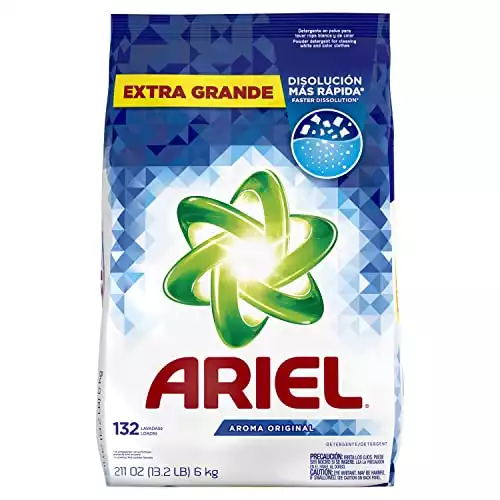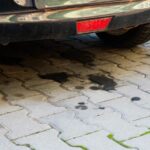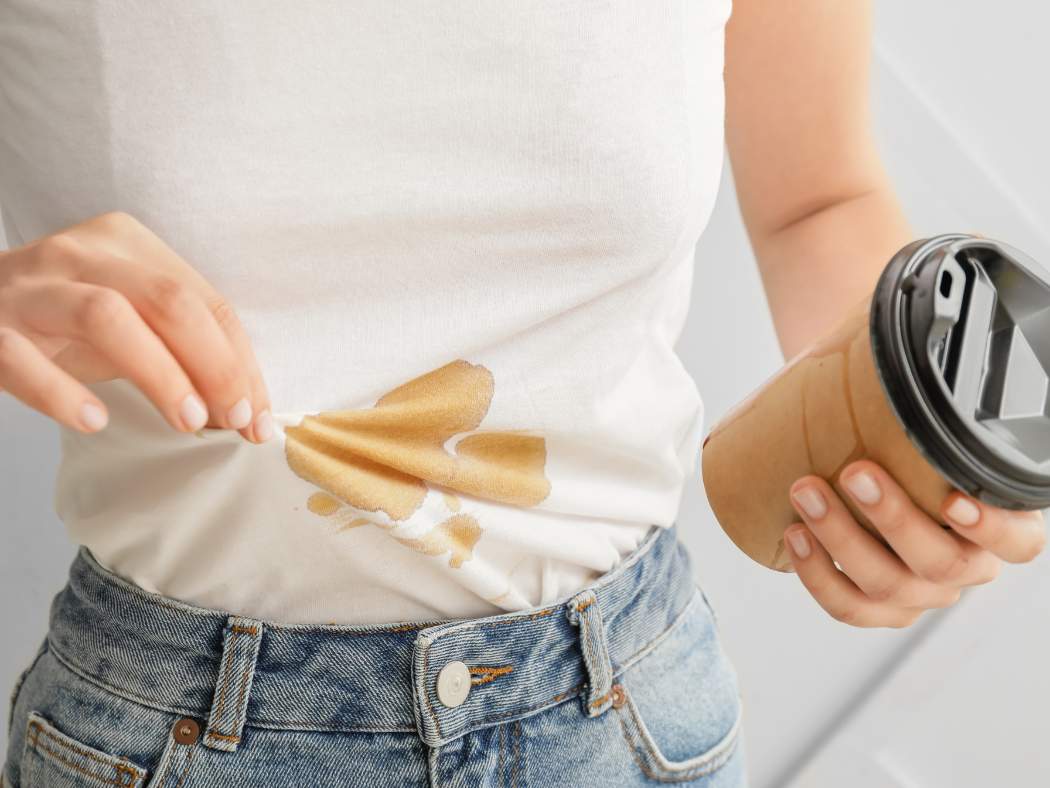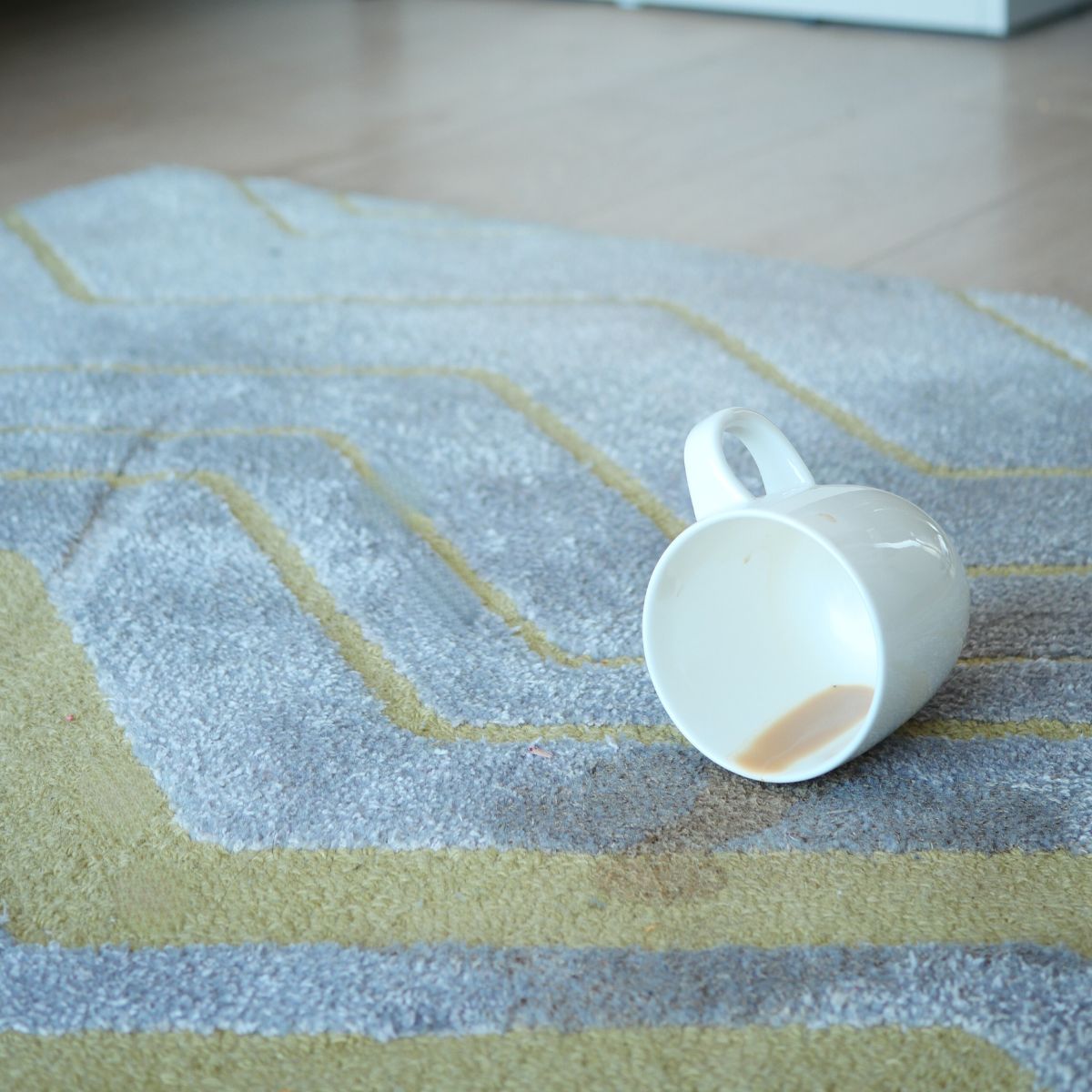How To Remove Oil Stains On Driveway and Asphalt
As a participant in the Amazon Services LLC Associates Program and other affiliate programs, Easy Homemade Life may collect a share of sales or other compensation from the links on this page. This comes at no additional cost to you, and all the prices and availability are accurate at the time of publishing.
Knowing how to remove oil stains on a driveway is a useful skill that everyone needs to learn. Not only are these stains an eyesore, but they can get tracked in your car or into your house, leaving an even bigger mess. Besides, who doesn’t want to have a clean and spotless driveway?
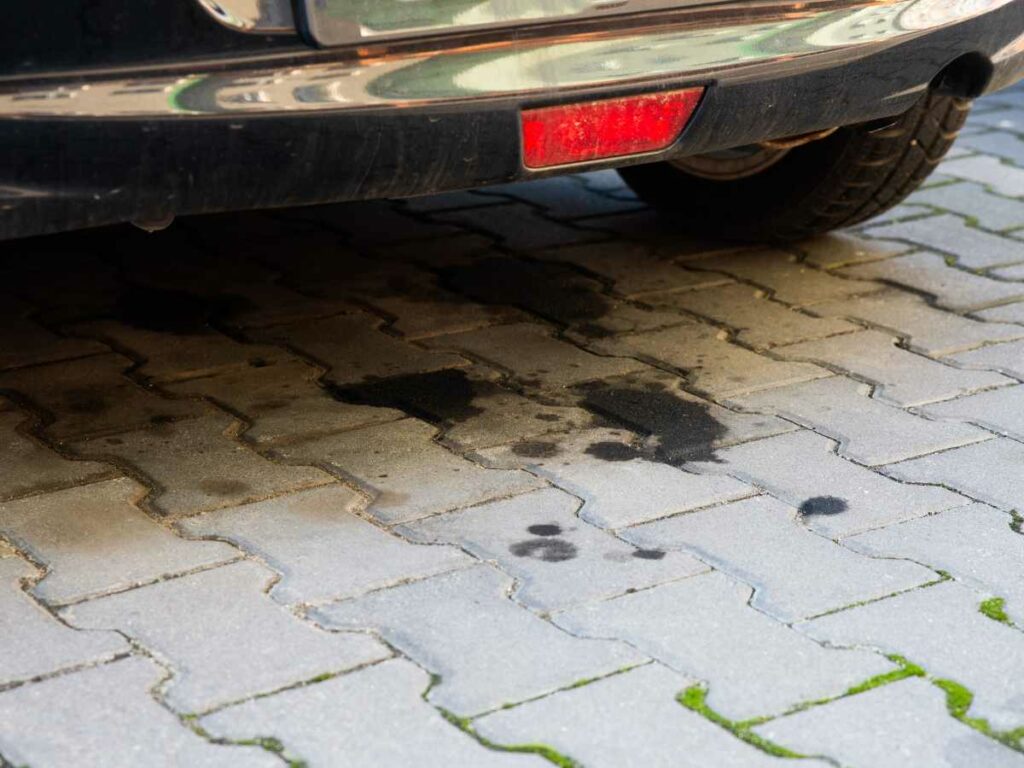
Engine oil, gas, and transmission fluid leakages are very common no matter how well you maintain your vehicle. The good news is that cleaning motor oil drips, leaks, and splotches from an asphalt surface is easy – no need to buy expensive cleaners, do power washing, or call for professional help. I’ve tried many ways to remove these stains in the past and I’m going to share with you some tried and tested methods that I discovered, including the effective removal of old oil stains. So without further ado, let’s get into it!
How to Remove Old Oil Stains from Asphalt Driveway
As a homemaker, I’m used to stain removal – I’ve had to clean all kinds of unsightly stains in our household, from coffee stains out of clothes to pet pee stains out of the carpet. I even know how to clean sneakers when they get scuffed up. So when I noticed that oil stains were ruining our asphalt driveway, I knew I had to do something about it.
I was delighted to learn from the University of Delaware, that asphalt is an impermeable surface, which means that it naturally resists the penetration of substances like oil and grease. Following the advice of friends and family, I tried quite a number of methods until I found the most effective ones to remove driveway oil stains. Our entire driveway looked as good as new in no time!
But what if the stain is old or has set in? No worries – powder or laundry detergent is your best bet! Soaps and detergents contain molecules called surfactants which make them effective at lifting surface oil and grease from surfaces.
So find some cleaning motivation, gather these common household items from around your home, and get ready to tackle those stubborn, older stains from your driveway. Let’s start!
What you’ll need
- Powder detergent (enough to cover the oil stain)
- Warm water
- Heavy-duty wire brush
- Dust the oil stain with powdered laundry detergent liberally, making sure it’s covered completely.
- Slowly pour small amounts of warm water at a time until a thick consistency is formed. Be careful not to add too much water and thin out the powder detergent.
- Use a bristle or stiff brush to scrub the paste onto the stain for 3 to 5 minutes.
- Leave the paste on your driveway for at least 1 hour. Once the time is up, scrub the area thoroughly once more.
- Using a hose, rinse with water and allow to dry.
3 Easy Ways to Remove Fresh Oil Stains on Driveway
For a fresh stain, there are plenty of methods you can try. They are not only effective, but they’re also easy to execute because all that’s required are common household products. The trick is to tackle them as soon as possible.
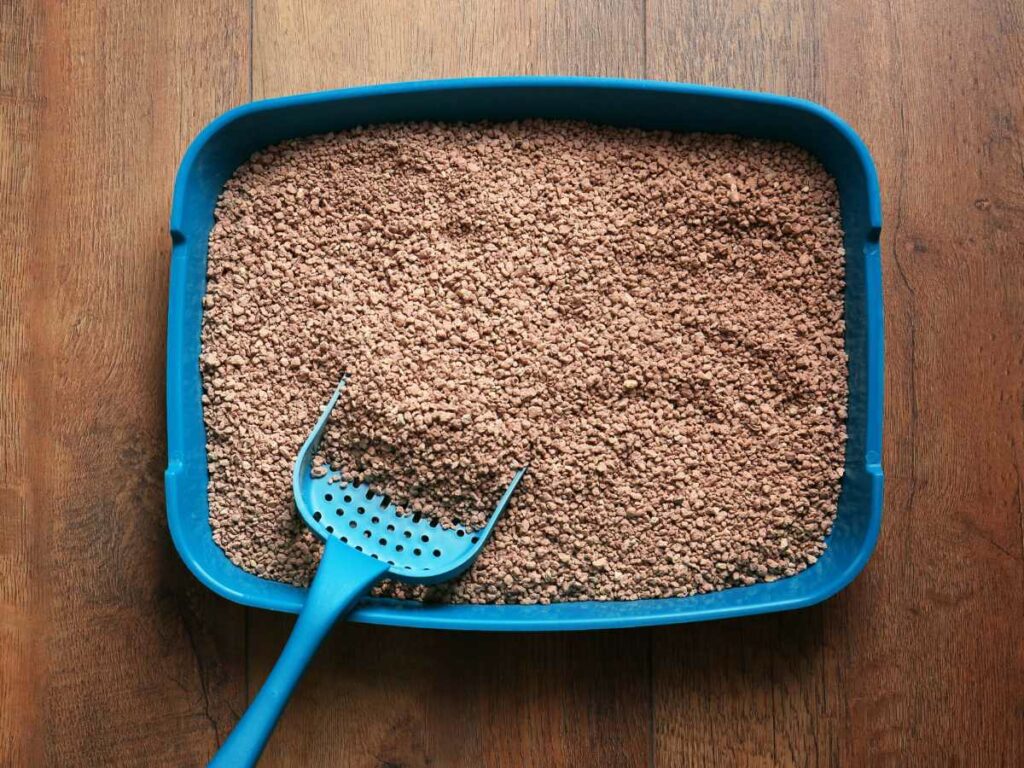
Cat Litter + Baking Soda
It’s common knowledge that baking soda is an effective all-around cleaner that’s free of harsh chemicals. From cleaning stainless steel pans to corrosion off a car battery, you can count on baking soda!
Combine it with cat litter and you’ll have a potent mixture for removing fresh oil spots from your driveway. Cat litter is great at soaking up oil, grease, grime and other spills on the garage floor because they’re made with highly absorbent granular clay. Be sure to use a cheap clay-based cat litter because more expensive brands tend to contain fillers that might reduce the litter’s absorbency.
What you’ll need:
- Cat litter (enough to cover the oil stain)
- Baking soda
- Water
- Broom
- Large bowl
- Silicone spatula
- Hard bristle brush
- Dishwashing soap (optional)
- Cover the oil stain completely with cat or kitty litter. Allow it to absorb the oil for at least 30 minutes. Once the time is up, use a broom to sweep the cat litter away from the stain. Discard the cat litter.
- Make a thick baking soda paste by mixing baking soda and water in a large bowl. Use 1 part water for every 3 parts of baking soda.
- Using a silicone spatula, spread the paste on the stain and let it stand for 10 to 15 minutes. Scrub with a brush afterward.
- Wash the paste off with water and allow it to dry.
- For stubborn stains, put a few squirts of dishwashing soap directly onto the stain and let it stand for about 10 minutes.
- Add some water and scrub with a brush before washing off with water.
Tip: You can also use cat litter as a preventive measure for oil spills. Just spread out some under a location (like an engine block) of your vehicle where you’re anticipating a spill to occur.
Cornstarch + Oven Cleaner
Starches easily cling to liquids, making cornstarch an effective oil absorbent. Oven cleaners, on the other hand, are formulated with ingredients that can easily dissolve oil, grease, and dirt. Together, they make a powerful combo for tackling fresh oil stains on an asphalt driveway.
What you’ll need:
- Cornstarch (enough to cover the oil stain)
- Oven cleaner
- Broom
- Stiff bristle or hard brush
- Dishwashing soap (optional)
- Sprinkle cornstarch all over the oil stain, making sure it is completely covered. Let it absorb the excess oil for at least 20 minutes. When time is up, use a broom to remove the cornstarch and discard.
- Spray the oil stain with an oven cleaner. Use enough to cover the spot completely. Let it settle for 10 to 15 minutes. Wash off with water and allow to dry.
- Again, you add dishwashing soap on the stain to make oil removal more effective. Let it settle for 10 minutes.
- Add some water and scrub in a circular motion with a bristle brush before washing off with water.
Paint Thinner + Sawdust
I had to go to my husband’s workshop to look for sawdust and paint thinner, and was ecstatic when he had them. If you don’t have these on hand, they’re available at your local hardware store. The sawdust will act as an absorbent, while the paint thinner will dissolve the oil. When combined, you get one of the most effective oil stain removers for driveways. This combo is best used for fresh oil stains.
What you’ll need:
- Paint thinner
- Sawdust
- Large bowl
- Broom
- Heavy-duty bristle brush
- Dishwashing soap (optional)
- In a large bowl, combine paint thinner and sawdust to create a thick paste. Make an estimate of how much of each ingredient to use based on the size of the oil stain.
- Cover the oil stain with the mixture completely. Let it sit for at least 30 minutes.
- Sweep off the mixture with a broom and discard. Repeat the process if needed.
- If the stain isn’t completely gone, add liquid dish soap to the stain and scrub with a brush for 3 to 5 minutes. Wash off with water and allow to dry.
An important thing to note is to always remove the residue of the oil and cleaning agents used from your driveway once it’s loosened. When you leave it in place, it will most likely re-stain your driveway once it dries up.
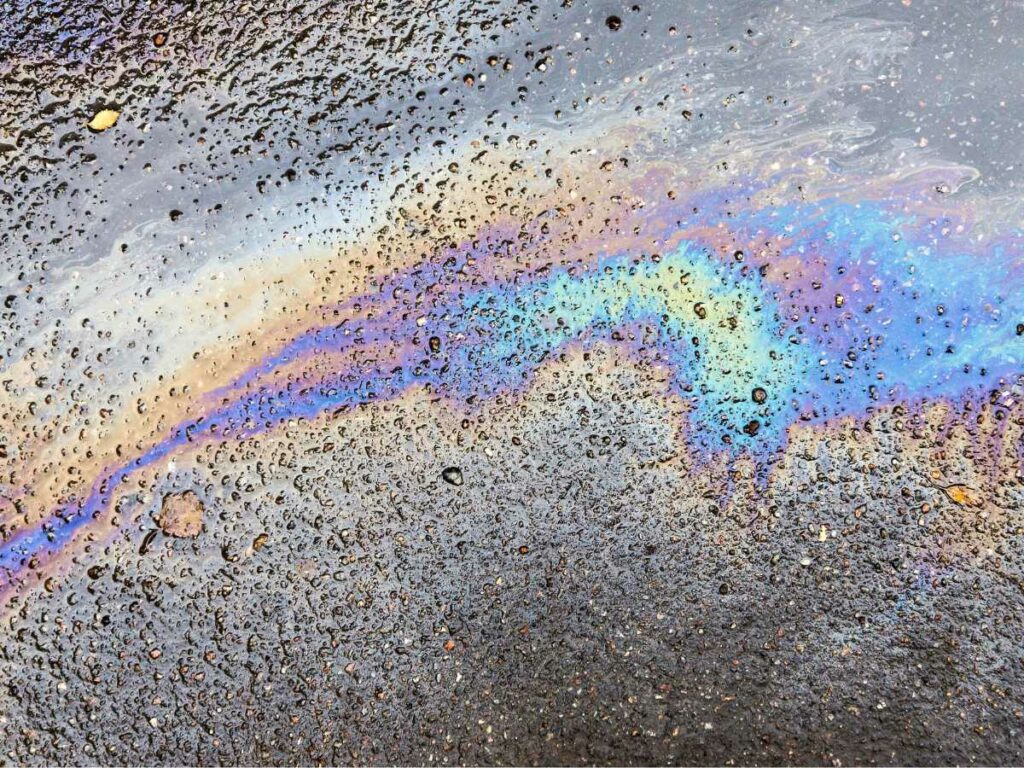
Wrapping Up
Now that you know how to clean an asphalt pavement using everyday household products and cleaning agents, you don’t have to worry about your driveway looking unsightly ever again. Whether you’re dealing with fresh oil spills or old ones, taking preventive measures as well as using the necessary equipment and the right methods for removing oil stains from asphalt, you can get excellent results without having to look for an expensive solution. Expect to have a clean, fresh, and inviting driveway for years to come! Good luck!
If you found this post helpful, I would be grateful if you shared it with your family or friends who you think might find this content useful, too so that we may all have clean driveways!
How to Effectively Remove Old Oil Stains from Asphalt
Equipment
- 1 Heavy-duty bristle brush
Materials
- 2 scoops powder detergent enough to cover the oil stain
- ¼ cup warm water only use enough to make a thick paste, this depends on how big the stain is
Instructions
- Dust the oil stain with powder detergent liberally, making sure it’s covered completely.
- Add small amounts of warm water to the powder detergent until you form a thick consistency. Don’t add too much water to avoid thinning out the detergent.
- Scrub the paste onto the stain for 3 to 5 minutes using a bristle brush.
- Leave the paste on your driveway for at least 1 hour. Once the time is up, scrub the area thoroughly once more.
- Rinse off the remaining mixture with water.


